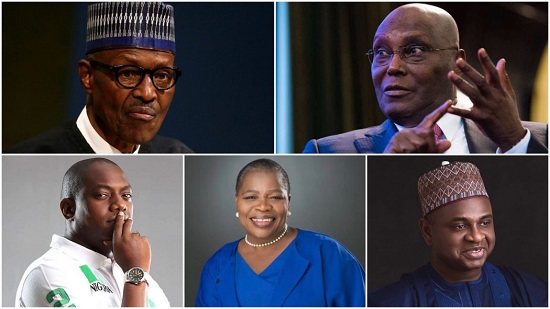This post has already been read 1924 times!
Bisi Olawunmi
Another cycle of presidential election debate in Nigeria holds on January 19, 2019, on the home stretch to the February 16, 2019 presidential election. Presidential election debate is an American innovation which was formalised with the televised debate between Vice President Richard Nixon (Republican) and Senator John F. Kennedy (Democrat) in the 1960 US presidential election. Nixon was the frontrunner but the narrow victory of Kennedy was attributed to television’s portrayal of his youthful, handsome, telegenic charm that swung enough votes in his favour. In elections between 1960 and 1980, many frontrunner candidates dodged the debate to preserve their advantage. American presidential election debates have been decisive in presidential election outcomes in two particular instances – the 1980 and the 1988 elections.
In the 1980 election between Governor Ronald Reagan (Republican) and President Jimmy Carter, (Democrat), the issues were framed as the sluggish economy and weak leadership. Carter was at a disadvantage given the economic slowdown and his being perceived as weak for not decisively dealing with Iran for holding Americans hostage at the embassy in Teheran. I watched the debate, held on October 28, 1980, being among foreign journalists covering the presidential campaign that year, in Los Angeles, California. A rather flustered President Carter was on the defensive and when Reagan posed the rhetorical question to the millions watching the debate: Are you better off today than four years ago? (when Carter assumed office) it was a clincher that swayed the electorate. The election result was a Carter wipe-out – he lost in 48 of the 50 states, winning only his home state of Georgia and in Minnesota, that of his running mate, Walter Mondale. In the 1988 encounter between Vice President George Bush (Republican) and Governor Michael Dukakis of Massachusetts (Democrat), it was a trigger question that ruined a complacent Dukakis, the frontrunner. The issue in that campaign was framed around security and escalating crime rate and the willingness of the candidates to go tough on crime, including imposing the death penalty. I also covered that debate, this time as a resident foreign correspondent in Washington, D.C. Bernard Shaw, who anchored the debate, had posed the question to Governor Dukakis: If Kitty Dukakis (his wife) were to be brutally raped and murdered, would you support the death penalty for the murderer? Looking deadpan, an emotionless Dukakis had gone into evasive rambling. He lost the election for being perceived as soft on crime.
In Nigeria’s 2019 presidential election debate, three major issues expected to feature prominently are insecurity/violent criminality in the land, joblessness and endemic corruption. For this debate, President Muhammadu Buhari, the All Progressives Congress’ candidate, is the man to beat, given the advantage of incumbency, but also the man that could take the biggest fall, if he flounders badly in defence of his record of performance in office. Participating in the debate is, therefore, dicey for this President. Candidate Buhari had participated in the 2007 and 2011 presidential election debates, but in 2015, projected as frontrunner, he strategically avoided the debate, apparently so as not to jeopardise the sense of impending victory, with a fumbling President Goodluck Jonathan, put in a defensive position. As things stand today, there is a role reversal, with President Buhari backed to the wall. Like President Jonathan in 2015, President Buhari is clawing at every straw to stay afloat in the turbulent political waters seeking to sweep him away. On the putative issues, can the President convincingly defend his record on security with resurgent Boko Haram, bandits on the rampage in Zamfara State and murderous herdsmen, kidnappers, cultists, and ritualists having a field day across the land? To what extent has he been strong, decisive in tackling insecurity? On jobs, with business closures and the National Bureau of Statistics indicating increasing job losses, what figures can the Presidency come up with to counter this official statement? Or are the social welfare dole-outs such as N-Power, Tradermoni, farmermoni substitutes for secure jobs? However, on the anti-corruption campaign, President Buhari is on a firmer ground. Successes have been achieved in this crusade, in spite of lingering charges of selectiveness, with the exposure of corrupt judges, the landmark jailing of two former governors and recovery of huge sums of money. But even here, the opposition can give him a jibe: Where are the recovered monies?
For former Vice President Atiku Abubakar of the Peoples Democratic Party and leading opposition candidate, he cannot be held accountable to much at the debate with regard to record of performance, except perhaps on the outcome of the privatisation programme of the Obasanjo Presidency when he was chairman of the National Privatisation Council. Of course, he has a perception problem with the notion of corrupt enrichment. But even the government has not been able to indict him on this. Atiku has a reputation as a generous giver and may have to contend with charges that he would open up the national treasury. In our clime, a debate can become an exercise in muckraking, so the Buhari camp or the other candidates might rake up dirt on Atiku that could rattle the otherwise confident candidate. Ultimately, for Buhari and Atiku, the two major candidates, the presidential election debate is a big gamble.
Without impugning the personal integrity of the other presidential candidates, they are merely have-runs, not having the wherewithal to constitute credible contenders for power. Including some of them in the debate is to massage their ego.
- Dr. Olawunmi, a former Washington Correspondent of the News Agency of Nigeria, is a Fellow of the Nigerian Guild of Editors and Senior Lecturer, Department of Mass Communication, Adeleke University, Ede. Osun State. Email: olawunmibisi@yahoo.com (SMS ONLY) 0803 364 7571.
[Punch]



